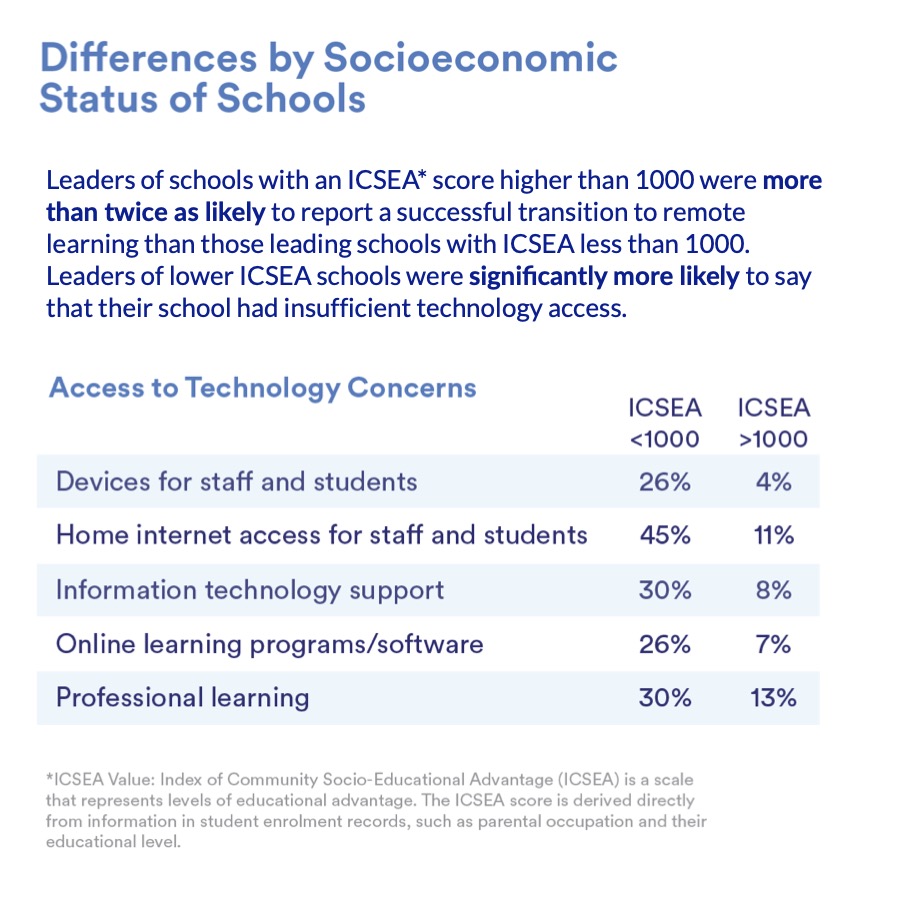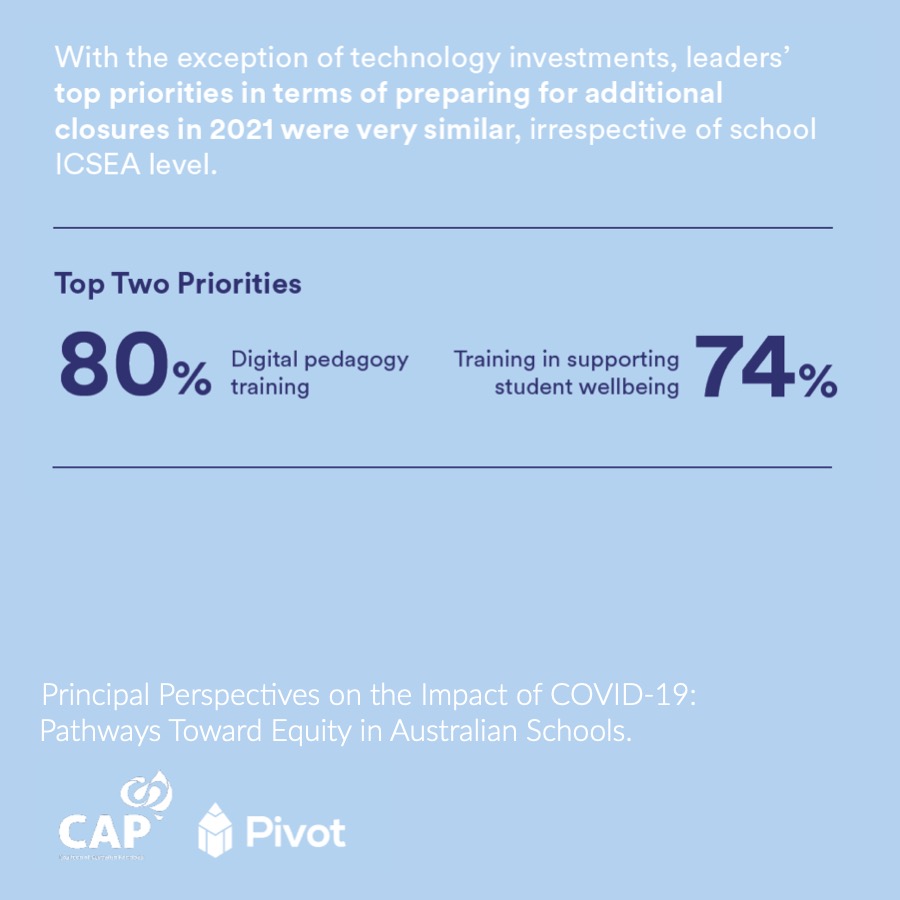Principal Perspectives on the Impact of COVID-19

Pathways to equity in Australian Schools
In late 2020, Pivot Professional Learning, in partnership with the Coalition of Australian Principals, invited principals of primary and secondary schools across Australia to participate in an online survey concerning their experiences during the continuing COVID-19 pandemic. A total of 456 principals and other leaders across the government, Catholic and independent sectors responded to the survey.
This latest research provides revealing insights into the challenges faced by school leaders and communities during the continuing COVID pandemic. Moreover, the research has laid bare profound underlying issues in the school system, particularly relating to inequality, that long predate the pandemic.
Along with some of the more troubling findings, principals who took part in the survey
also reported a surprising number of positive outcomes and discoveries from their experiences during the pandemic. Some of these insights will inevitably lead to positive and permanent changes in the way many schools operate, and children are educated in
the years and decades ahead.
Pivot Professional Learning CEO, Amanda Bickerstaff, said: “This is a landmark study that brings together the experiences and priorities for principals from every sector and context in Australia. Now more than ever we must prioritise listening to our school leaders. We need to ensure our schools are future-proofed and able to support an equitable education for all students.”
Research Respondents
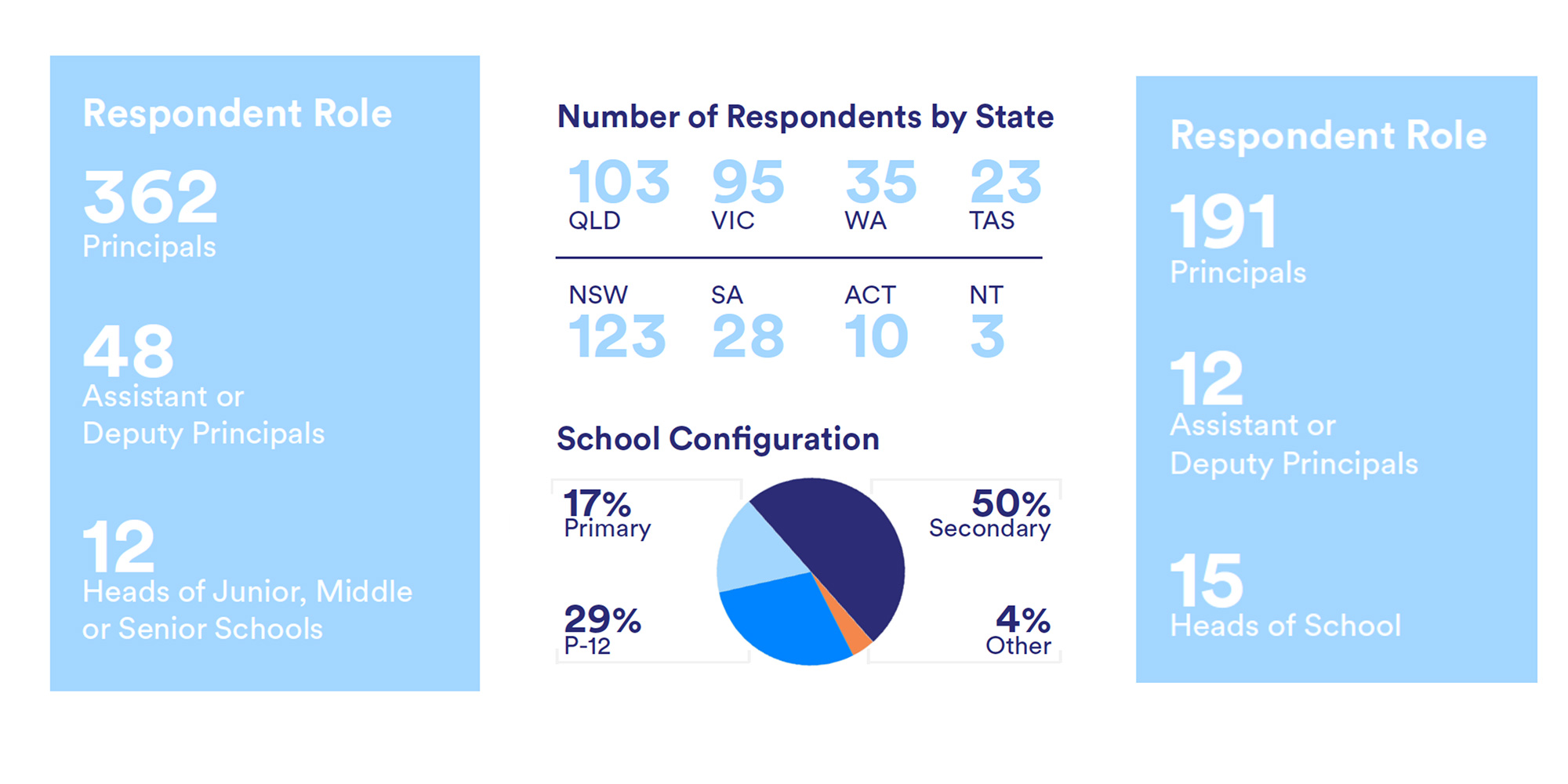
Rising to the Challenge
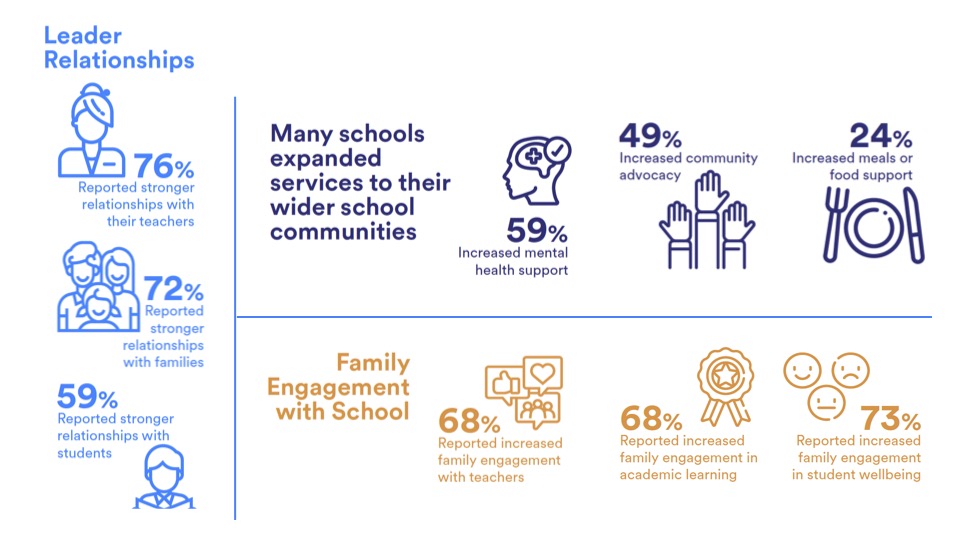
Impact on Leaders
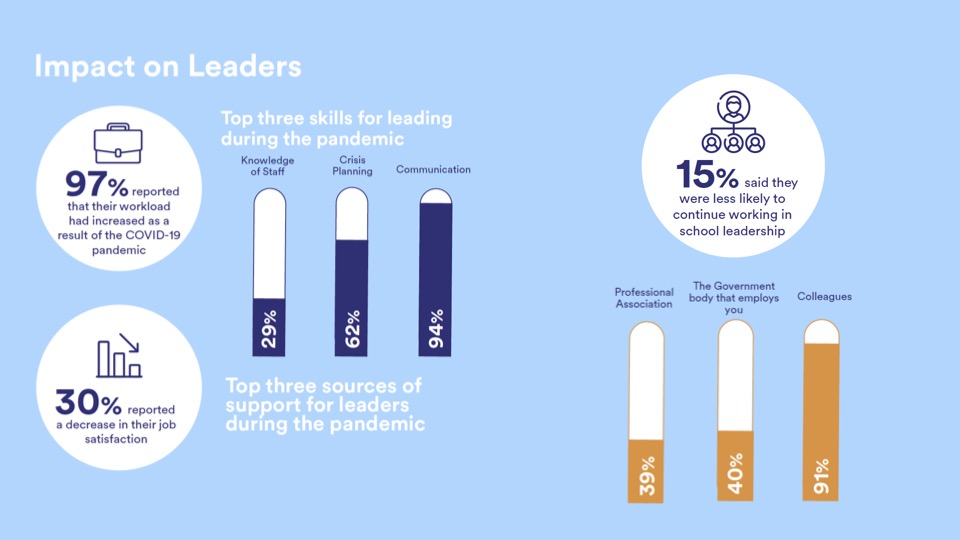
Differences by Socioeconomic Status of Schools
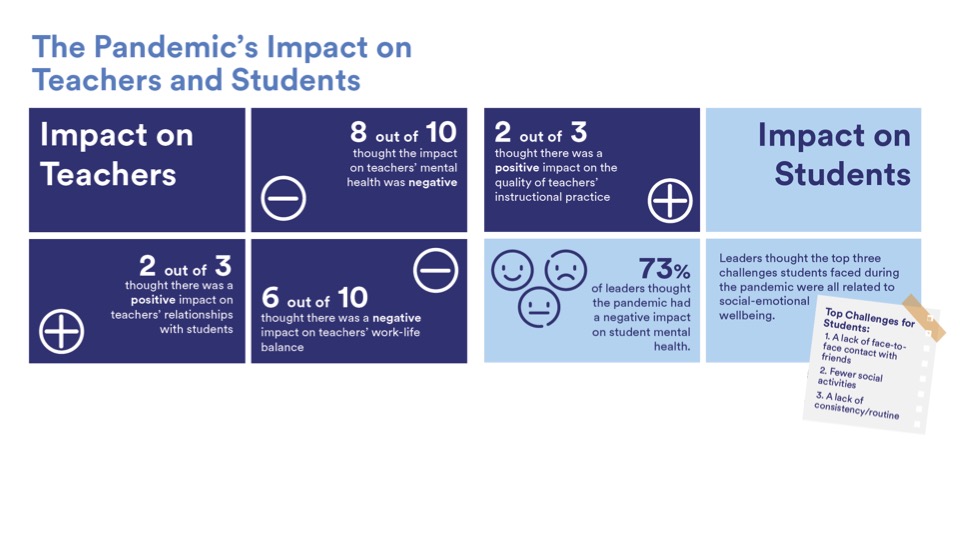
Leaders of schools with an ICSEA* score higher than 1000 were more than twice as likely to report a successful transition to remote learning than those leading schools with ICSEA less than 1000.
Leaders of lower ICSEA schools were significantly more likely to say that their school had insufficient technology access.
